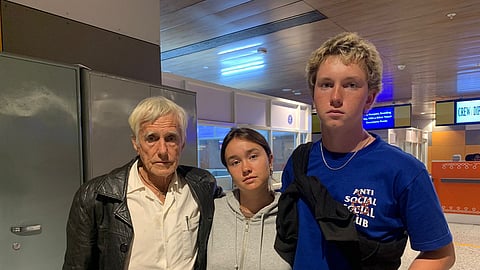Australian filmmaker David Bradbury denied entry to India, his kids made to travel alone
Shortly after midnight, in the early hours of September 11, famous Australian filmmaker David Bradbury had arrived in India to travel the country for a few weeks with his children Nakeita, aged 21, and Omar, 14. On reaching the Chennai airport at 1 am, however, David, a two-time Oscar award nominee, was stopped by the immigration officials, while Nakeita and Omar were allowed to pass through. He was then taken to a room in the airport, where he was allegedly held in detention for 24 hours before being forced to fly back to Thailand, where the trio had come from.
David had to part with his children and hope that they’d be able to travel across India on their own, including a trip to Varanasi to give a ‘Hindu farewell’ to his deceased partner Treena Lenthall, who was Omar’s mother. David never got an explanation on why he was not allowed to enter the country. However, he believes that it may have to do with his documentary, covering the protests of the people of Tamil Nadu against the Kudankulam nuclear plant in 2012.
“We had spent two weeks in Bangkok before coming to India. There was a delay in processing dad’s visa, but it had come through in the end, and we were excited to travel to India. It is my first time here, and we thought dad would be with us to show us around. He had come before in 2012, with Omar, who was then only three years old,” Nakeita told TNM when we met her and Omar on September 18, the day they came to Thiruvananthapuram.
On September 26, they left India after completing the itinerary as they had planned. They have been in touch with David Bradbury, who will meet them in Milan in the next leg of their tour. “We had stood just a few metres across from him when we were allowed into India, and he was not,” Naiketa recalled.
“The officials at the airport asked us to convince my father to go back to Thailand,” Omar said. In the end, David had to return to Thailand and spend a lot of money for the ticket, or else, he was told by Thai Airways, he’d be deported back to Australia.

